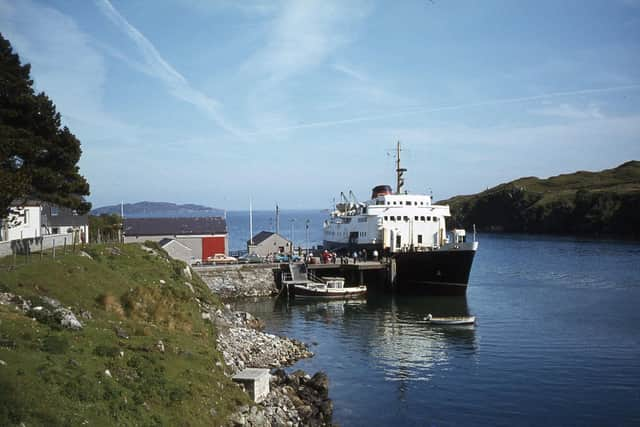For Scottish islanders, it's the decision makers who feel very far away
The latest ferry-related fiasco which pulled the MV Hebrides off the Skye Triangle route last week has intensified a feeling of disenfranchisement.
Not just a popular tourist route, the lifeline service between Tarbert on Harris, Lochmaddy on North Uist and Uig on Skye connects islanders and goods with the mainland via the Skye Bridge.
Advertisement
Hide AdAdvertisement
Hide AdAs services were stopped last Tuesday by the Scottish Government-owned Calmac due to an issue with firefighting equipment, there were reports of tourists sleeping in cars as they waited for an extra 3am service out of Stornoway back to the mainland.
We don’t yet known if they will bother to return.
Crucially, for islanders, the day-to-day impact of an ageing ferry fleet is all too familiar. In South Uist, there was chat of milk and dairy products being rationed. A woman needing to get to a relative’s funeral on the mainland had to get the help of her MSP to secure a ticket. Meanwhile, hospital appointments were missed and crofters left unable to get lambs to market.
The events of last week were a grim forecast given the forthcoming closure of Uig pier, which will shut for five months in October for an upgrade.


Warnings have been repeatedly aired by residents about the impact this closure will have. Last week’s cancellations grimly illustrated their point and more than 8,300 people have now signed a petition calling for a delay, or alternative proposals for the Uig harbour closure to be set out.
A meeting with Transport Minister Jenny Gilruth on Monday to discuss possible mitigations to the harbour closure has offered some hope. But, with the potential solutions so far uncosted and not yet planned, residents feel their warnings have gone unheeded for too long with islanders ultimately paying the price several times over.
Islanders consider ferry routes as their motorways with a belief that transport on the M8, for example, would never be allowed to be disrupted in this way. For these island tax payers living at the centre of their world, it’s the decision makers who are the ones who feel very far away.
